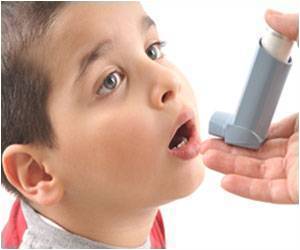World Asthma Day is an annual event that hopes to raise awareness and educate about this common lung condition. It is observed on the first Tuesday of May each year.
- Asthma is a common lung condition affecting nearly 300 million persons worldwide and expected to cross 100 million by 2025.
- World Asthma Day observed annually aims to increase awareness, educate the population and improve the lives of those affected with this chronic condition.
- The 2017 theme ‘Better air better breathing’ highlights the importance of measures to reduce pollution levels and maintaining a clean and dust free environment.
World Asthma Day
The first World Asthma Day was celebrated in 1998 to coincide with the first World Asthma Meeting held in Barcelona, Spain. Since then it has earned recognition as a major event and is observed worldwide to educate and touch the lives of people affected by this condition. The event celebrated annually on the first Tuesday of May and supported by the organization - Global Initiative for Asthma (GINA). Some of the activities undertaken on World Asthma Day include organizing free health camps, and social events to create and spread awareness. Generally a new theme is chosen each year to create a focal point for the efforts.Fundraisers such as walks, marathons, and swims may also be conducted and the proceeds are used to support research and other activities related to improving the lives of people with this disease.
Asthma – Facts And Figures
- Nearly 300 million people worldwide suffer from asthma and the figure is expected to cross 100 million by 2025.
- Every year at least 250,000 persons die of this disease most of which can be prevented.
- Nearly 70% of asthmatics have some form of allergy.
- Occupational asthma or conditions related to workplace, such as exposure to dust smoke or fumes, is responsible for about 10% of cases.
- Asthma is more common in obese individuals compared to normal weight individuals.
- Adult women are affected more often, however among children the disease is more common in boys.
- Since asthma is a chronic condition, it is one of the top reasons for absenteeism from school or work leading to loss of productivity and loss of income.
- Among ethnic groups Puerto Ricans have the highest prevalence of asthma.
- Health costs due to asthma in the US are estimated to be $ 56 billion annually.
Living And Coping With Asthma
Asthma is a respiratory disorder that causes narrowing of the air passages due to a variety of reasons such as allergens like dust, fumes and smoke. Symptoms include difficulty in breathing, feeling of tightness in the chest, cough and wheeze.At present there is no cure for asthma, though symptoms can be controlled by medications such as steroids and bronchodilators either orally or as inhalers.
Awareness about the condition can help us reduce if not totally prevent suffering from an asthma attack. Following an action plan can go a long way in reducing the severity and frequency of attacks. Some of the measures that we can follow include
- Have a management plan chalked out in consultation with your health care professional
- Avoid known triggers such as smoke, dust, pollen, cold and irritants
- Be up-to-date with your pneumonia and flu vaccinations
- Take your asthma medications regularly
- Carry your medications and inhalers whenever you travel
- Learn to identify attacks in the early stage and take measures immediately
- Breathing exercises may help reduce and even prevent asthma attacks if followed regularly
- Asthma Statistics - (http://www.aaaai.org/about-aaaai/newsroom/asthma-statistics)
- Facts and Statistics about Asthma - (http://www.asthmacommunitynetwork.org/node/16422)
- Asthma Prevention - (http://www.mayoclinic.org/diseases-conditions/asthma/basics/prevention/con-20026992)
Source-Medindia















